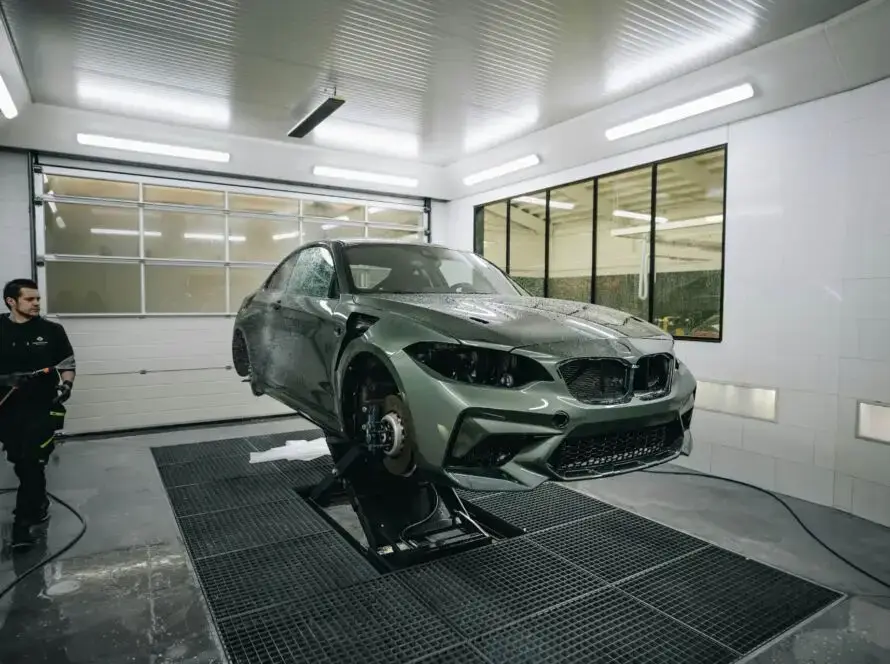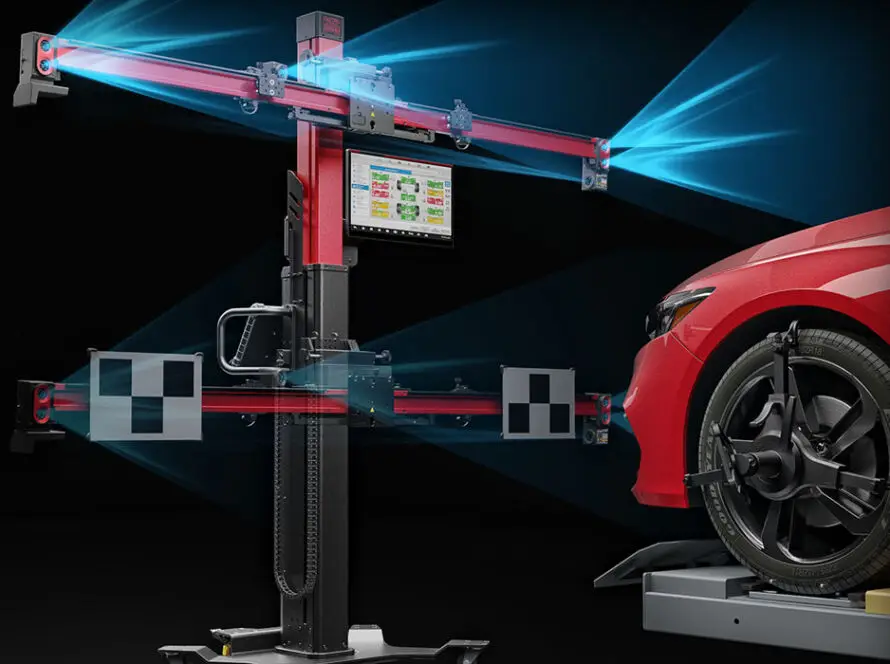When it comes to vehicle repairs, particularly after an accident, the choice between going to a body shop or a dealership can be a tough decision for many car owners. Both options have distinct advantages and disadvantages depending on the nature of the repair, the vehicle’s make and model, and individual preferences. Whether you’re dealing with a minor dent or a more complex collision repair, understanding the differences between body shops and dealerships can help you make an informed decision that best suits your needs and budget.
This article explores the pros and cons of choosing a body shop versus a dealership for vehicle repairs, with an emphasis on aspects like cost, expertise, convenience, and customer service.
What Is a Body Shop?
A body shop is an auto repair facility specializing in vehicle bodywork, which includes the repair and replacement of exterior components, such as bumpers, fenders, and doors. Body shops are commonly independent businesses or part of larger chains. They are equipped to handle cosmetic repairs, collision damage, frame straightening, paint jobs, and other body-related services.
What Is a Dealership?
A dealership, on the other hand, is a certified service center that specializes in repairs and maintenance for a specific brand of vehicle. Dealerships typically employ technicians trained and certified by the vehicle manufacturer, making them experts in working with that specific brand. They offer services like routine maintenance, warranty work, software updates, and more extensive repairs for a specific make or model.
Pros and Cons of Going to a Body Shop
Pros of Going to a Body Shop
-
Cost-Effectiveness
-
Lower Repair Costs: Body shops are often less expensive than dealerships, as they generally have lower labor rates and fewer overhead costs. While the cost of parts may be similar to a dealership, the labor cost at an independent body shop is typically more affordable, which can save you money, especially on more extensive repairs.
-
Competitive Pricing: Since many body shops operate independently or as part of large chains, they may offer competitive pricing and promotions to attract customers, which may not always be available at dealerships.
-
-
Expertise in Collision Repair
-
Specialized in Bodywork: Body shops typically focus on vehicle body repairs, which makes them specialists in areas such as dent removal, frame straightening, paint matching, and restoring the aesthetic and structural integrity of the vehicle. If you’ve been involved in a car accident, a body shop can likely handle all aspects of the repair with greater proficiency in cosmetic and structural work.
-
Custom Work: If you need modifications, custom paint jobs, or aftermarket parts installed, body shops often have more flexibility and experience in these areas compared to dealerships, which typically stick to manufacturer-approved parts and services.
-
-
Quicker Turnaround
-
Faster Service: In many cases, body shops can offer quicker turnaround times because they focus on a broader range of repairs and often have fewer vehicles to service at any given time. They are generally less busy than dealerships, especially those with larger customer bases for other services like oil changes or warranty repairs.
-
-
Insurance Claims Assistance
-
Experience with Insurance Companies: Body shops often work closely with insurance companies and have a streamlined process for handling claims. Many body shops have dedicated insurance claim experts who help facilitate the approval process and provide estimates that align with the insurance provider’s expectations.
-
Cons of Going to a Body Shop
-
Limited Expertise with Advanced Systems
-
Lack of Manufacturer-Specific Knowledge: While body shops excel at cosmetic repairs and structural integrity, they may not be as equipped or trained to handle the more technical aspects of modern vehicles, such as Advanced Driver Assistance Systems (ADAS) calibration, complex electronics, or software-related repairs. For vehicles equipped with advanced features or specific technology, you may be better off going to a dealership that specializes in that particular make.
-
-
Potential for Non-OEM Parts
-
Use of Aftermarket Parts: While many body shops use Original Equipment Manufacturer (OEM) parts, they sometimes opt for aftermarket parts, which may be less expensive but could lead to differences in quality or fit. If maintaining factory standards is essential to you, it’s important to clarify whether OEM parts will be used for repairs.
-
Pros and Cons of Going to a Dealership
Pros of Going to a Dealership
-
Expertise and Knowledge
-
Brand-Specific Expertise: Dealerships employ technicians who are specifically trained by the vehicle manufacturer. These technicians have in-depth knowledge of the make and model of your vehicle, allowing them to handle repairs with brand-specific expertise. This is especially beneficial for complex repairs and ensuring that your vehicle is repaired to the manufacturer’s specifications.
-
Manufacturer-Approved Repairs: Dealerships are equipped with the tools, equipment, and software required to perform repairs that adhere strictly to the manufacturer’s guidelines. They also use OEM parts, ensuring the repairs maintain the vehicle’s original quality and functionality.
-
-
Comprehensive Services
-
Access to Specialized Technology: Dealerships are often better equipped for diagnosing and repairing complex systems in modern vehicles, such as ADAS calibration, hybrid systems, and advanced electronics. If your vehicle requires a software update, complex recalibration, or repairs to integrated systems, a dealership is often your best choice.
-
Warranty Repairs: If your vehicle is under warranty, the dealership is the recommended location for repairs covered under the warranty. Going to a non-dealer repair shop may void your warranty, especially if non-OEM parts are used or manufacturer guidelines are not followed.
-
-
Original Equipment Manufacturer (OEM) Parts
-
Guaranteed Parts Quality: Dealerships typically use only OEM parts, which are designed to fit and perform as intended by the vehicle manufacturer. OEM parts often come with a warranty, which may not be the case with aftermarket parts from a body shop.
-
-
Consistent Service and Trust
-
Reputable Customer Service: Since dealerships are tied to specific brands, they often offer a higher level of customer service and accountability. If you encounter issues with a repair, it’s easier to address concerns through a dealership, as they are more likely to take responsibility for the work done.
-
Cons of Going to a Dealership
-
Higher Costs
-
More Expensive Repairs: Dealerships are generally more expensive than body shops due to higher overhead costs, including service staff, parts, and equipment. Labor rates tend to be higher at dealerships, and they may charge a premium for using OEM parts.
-
Limited Flexibility: Dealerships may have less flexibility when it comes to using aftermarket parts or customizing your vehicle. Their focus tends to be on factory-approved repairs and parts, which can limit your options.
-
-
Longer Wait Times
-
Busy Service Departments: Dealerships often handle a high volume of work, particularly for routine maintenance and warranty repairs. This can result in longer wait times for your repair to be completed, especially if the vehicle requires special parts or extended diagnostics.
-
Factors to Consider When Choosing Between a Body Shop and a Dealership
-
Type of Repair: If you need routine maintenance or warranty-covered repairs, a dealership is likely the better option. However, for collision repairs or cosmetic fixes, a body shop may be more cost-effective and quicker.
-
Vehicle Complexity: For high-tech, brand-specific repairs, or issues involving ADAS or hybrid systems, a dealership will likely have the expertise and tools required. Body shops may struggle with such systems unless they have specialized knowledge.
-
Budget: Body shops tend to be more affordable for basic repairs, while dealerships often charge more for their brand-specific expertise and OEM parts.
-
Insurance: If you’re dealing with an insurance claim, you may want to choose a body shop with experience in handling claims, as they can assist with the process and ensure that repairs are covered.
-
Warranty Considerations: If your vehicle is under warranty, it’s usually best to visit a dealership to avoid voiding the warranty. Always check the warranty terms before choosing a non-dealer shop.
Conclusion
Choosing between a body shop and a dealership for repairs depends on the nature of the issue, the vehicle’s complexity, and personal preferences. While body shops often offer more affordable and efficient solutions for cosmetic and collision repairs, dealerships provide brand-specific expertise, high-quality OEM parts, and specialized knowledge for advanced repairs. Consider your vehicle’s needs, budget, and warranty status when making a decision. Regardless of the choice, the goal should always be to ensure that the repair is done correctly and safely, preserving both the integrity of your vehicle and your peace of mind.




